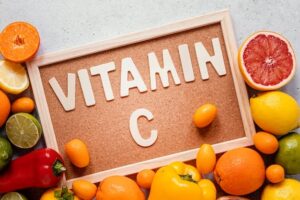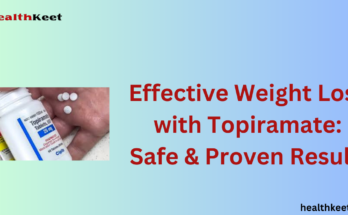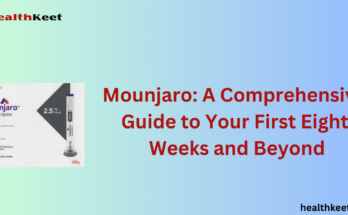Similar to younger siblings, hormones are frequently and sometimes unfairly held responsible for everything Flashes. Having said that, hormones may also be to blame for other conditions such as weariness, pain, brain fog, fluctuating sex desires, and weight gain or loss. They are also to blame for the vasomotor symptoms that women and people who were designated female at birth (AFAB) suffer, particularly before and during menopause and hot flashes and night sweats.
You’re probably familiar with the sensation of an unexpected heat wave and pool of sweat covering your entire body 9 foods that fight hot flashes. These rage-inducing flashes can influence your mood, sleep patterns, and whether you feel angry, joyful, or a combination of the two (mappy?).
What causes hot flashes in you?
Variations in estrogen levels produce vasomotor symptoms. As you are aware, estrogen governs a variety of bodily processes and contributes to the growth of secondary sexual traits like breasts and hips. It also serves a variety of other purposes when it interacts with other hormones, such as enabling pregnancy and childbirth in women and people with AFAB. Your estrogen levels fluctuate like a pogo stick as you age.
Because fluctuating estrogen levels can make your blood vessels expand or contract, this variation makes it difficult for your body to maintain a constant blood flow. It is extremely likely that you will feel blood surges because of the unrhythmic change in pace caused by the levels fluctuating, which causes these vessels to contract and dilate at different rates. You feel the heat as a result of that and the role estrogen plays in controlling body temperature.
Michael Roizen, MD, a wellness expert, advises using diet to help reduce hot flashes if you have a lot of them.
Has nutrition a bearing on hot flashes?
You can definitely change your diet to reduce heat flashes. Dr. Roizen advises adhering to the “When Way,” which involves only eating when the sun is up and including a variety of fruits and vegetables. This promotes proper blood flow because fiber keeps everything stable.
The Mediterranean diet is also an excellent long-term option if you’re searching for a specific new eating regimen to help decrease hot flashes. According to one study, women who ate a diet high in vegetables, whole-grain pasta, and olive oil had a 20% lower risk of having hot flashes and night sweats.
Foods to eat to combat heat flashes
If you don’t want to completely alter your diet, you might try including particular foods to assist prevent hot flashes. You could experience some comfort by focusing on certain foods and eliminating others.
Soy-based goods
In several studies, the substances found in soy, genistein and daidzen, have been proven to help reduce hot flashes.
Try consuming foods made of soy, such as tofu.
- edamame or soy beans.
- vegan milk.
In fact, all edible beans, according to Dr. Roizen, have a beneficial effect, so be sure to include them frequently in your diet. Even better news: Extensive research has revealed that moderate soy consumption doesn’t raise the risk of breast cancer.
Additionally, phytoestrogens, which resemble biological estrogen and may support hormonal regulation, are included in many meals.
Wholesome fats
Working in healthy fats is just as important as increasing your intake of vegetables. According to one study, eating meals rich in omega-3 fatty acids can help with hot flashes and nocturnal sweats. Hot tip: Swap out your butter for olive oil and your animal items with fatty fish.
Salmon and sardines are two examples of foods high in omega-3 fatty acids.
- Chicory root.
- seeds of hemp.
Cooling down food
Are certain dishes tastier than others? While further research is required, traditional Chinese medicine (TCM) has helped some women. There are several “cooling foods” that, in addition to herbal remedies, may aid with hot flashes brought on by menopause.
TCM practitioners advise eating a healthy balance of warm and cold meals to maintain your body’s equilibrium. You might try cooling meals to aid when your body is producing too much heat.
Try these examples of foods that are cooling:
- Choi koo.
- Romaine greens.
Noxious foods
Both adding and removing specific foods from your diet can be advantageous. Certain meals have been shown to exacerbate the symptom of hot flashes.
In order to control your hot flashes, avoid the following foods:
Coffee
According to a study, coffee consumption is linked to an increase in uncomfortable hot flashes. Additionally, the caffeine in coffee can increase your heart rate and lead to dehydration, which could exacerbate those symptoms. In order to avoid caffeine withdrawal, you can always drink decaf and green tea (in moderation).
Alcohol
The occasional drink of wine won’t have a significant effect on your symptoms. However, if you have more than one drink every day, you might feel the heat. According to one study, drinking alcohol made menopausal women’s hot flashes worse (more intense). Consider limiting yourself to one drink per day or less.
Trans fats and sugars
There are now even more reasons to consume fewer processed foods. Menopausal women’s hot flashes symptoms have been connected to elevated blood pressure. Consuming processed foods tends to raise blood pressure, which may cause your hot flashes to become more frequent.
Limit your consumption of highly processed foods, such as baked products.
- sugary drinks.
- swift meal.
- fried food.
- Both margarine and butter.
It’s critical to pay attention to your body’s signals and understand what meals can be setting off your hot flashes. But first, there are a few dietary changes you can do to get some relief from your symptoms. Food won’t always make things better, so if your hot flashes are truly hurting you, talk to your doctor.
VEGETABLES HIGH IN VITAMIN E
Results from a 2007 study on the effect of vitamin E in menopausal women indicated that it significantly reduced the intensity of hot flashes. During perimenopause and menopause, vitamin E also helps to reduce the risk of weight gain, depression, and heart disease.
Experts advise taking 15 mg of vitamin E daily to prevent hot flashes and other menopause symptoms. Vitamin E is present in large quantities in a number of foods, including avocado, broccoli, mussels, spinach, squash, and sunflower seeds. However, supplements are the simplest way to be sure you are getting an adequate quantity.
BIOFLAVONIA & VITAMIN C
Female health professionals advise taking vitamin C and bioflavonoids together on a regular basis to considerably reduce hot flashes brought on by perimenopause and menopause.

Citrus fruits like limes, lemons, and oranges contain both vitamin C and bioflavonoids, with the white core and pulp in particular being an excellent source of bioflavonoids. Fruits like cherries, grapes, and pomegranates contain a combination of both.
HEALTHY SNUFFLES
In addition to the nuts already mentioned, seeds like pumpkin, sesame, and sunflower seeds, which all contain phytoestrogens, are excellent to snack on all day to prevent hot flashes during menopause.
Consuming raw vegetables as a snack, such as carrots, celery, green beans, and sprouts, will not only aid to lessen hot flashes but will also give the body nutritious nutrients for women’s general health.
Conclusion
The things you eat might either make your hot flashes worse or less severe if you are going through menopause or perimenopause. Eating nutrient-rich foods, cooling foods, and foods high in phytoestrogens can considerably lessen the frequency and severity of hot flashes as well as relieve other menopause symptoms. Processed foods, on the other hand, can make hot flashes worse.
Consult your doctor before making any big dietary changes to make sure you are getting all the nutrients you need to fend off menopause’s adverse effects.



















